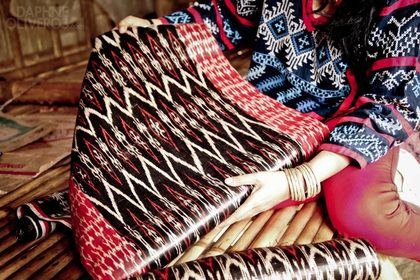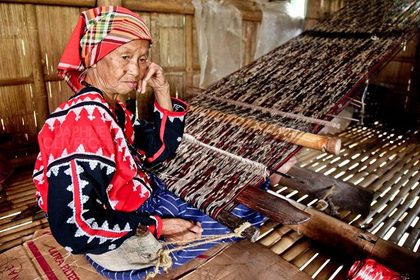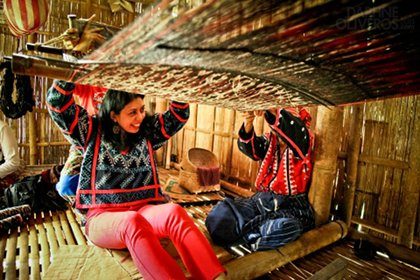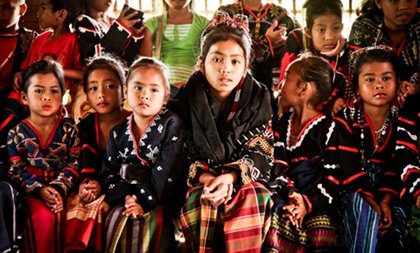SUMMARY
This is AI generated summarization, which may have errors. For context, always refer to the full article.
SOUTH COTABATO, Philippines – The goddess Fu Dalu visits T’boli women in their dreams to instruct them about patterns to weave on their back looms. The product is the precious T’nalak, a special fabric with sophisticated patterns of woven dyed abaca fibers.
Because of their unique patterns, authentic T’nalaks cannot be mass-produced. Every design is new and is never replicated. Each one is one of a kind. Each one is believed to be sacred.

Perhaps the most popular product of the T’boli women from Lake Sebu, in South Cotabato, the T’nalak has gained some popularity even beyond Philippine shores.
Because of financial need and the demand for the fabric, some T’boli weavers started to entertain the idea of mass-producing it, opting to take design directions from visitors who came over to buy and control the patterns.

As the tradition of weavers started to decline, Lang Dulay, a traditional T’boli weaver in her 90s, remained steadfast, choosing to remain committed to preserving the value of the sacred T’nalak fabric.
For this, she was recognized in 1998 by the National Commission for Culture and the Arts for preserving and cultivating the art of T’nalak weaving. She was given the Gawad sa Manlilikha ng Bayan award in recognition of her mastery and expertise.
Preserving the craft
Another woman who grew up Iligan City, Lanao del Norte understood the value of Southern culture. Fond of the intricate patterns and colorful costumes that she performed with as a former member of the Bayanihan Philippine National Dance Company, Len Cabili has likewise helped in preserving T’boli culture.

As designer and owner of Filip + Inna clothing, Len has done her bit in preserving T’boli craft. As one of her charities, she financially supports a school exclusively for T’bolis.
She commissions the T’boli women, among other tribes, to help design her Filip + Inna clothing line. Filip + Inna features designs that are exclusively embroidered and handcrafted by several Filipino tribes, including the T’bolis of South Cotabato.

Filip + Inna garments and accessories carry traditional Filipino styles and patterns created by the tribal artisans themselves. Cabili’s products have likewise extensively travelled around the Philippines, passed on from one hand to another, before they are sold abroad.
Filip + Inna clothing has joined several trunk shows exhibiting the creative work of Filipino tribes. The most recent ones included shows in Dallas, Connecticut, and New York. – Rappler.com
To know more about Filip + Inna, visit their website at http://filipinna.com.
Click on the links below for more.
Add a comment
How does this make you feel?
There are no comments yet. Add your comment to start the conversation.